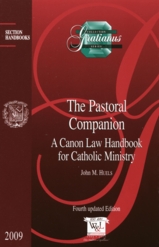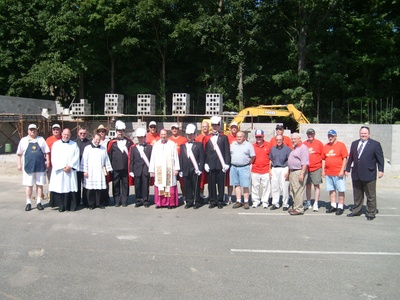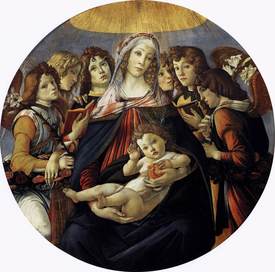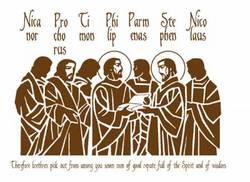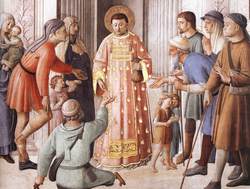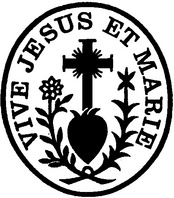Some of our brothers and sisters have found themselves in a downward spiral that could end in premature death if a fundamental change doesn’t happen: getting & remaining clean. It’s easy to pontificate about the necessity to get and stay clean “or else,” perhaps even trying brow-beat someone into change hoping to trigger a desire to live more healthily. None this works. The simple thing is to allow God’s grace to work and to have a clean environment to live and work, to provide competent professional help and to make opportunities available for substantive change to happen. One more ingredient in my book that’s essential and a non-negotiable is the spiritual. Prayer, spiritual direction and fidelity to the witness of the Church goes to the root level of human desires and happiness given us by Divine Providence. But we have to admit that unless a drug addict wants to change her life no amount clever argument or cute programing is going to matter. If a person doesn’t take his human heart (his desires) seriously, including his need of happiness, then there is little we who aren’t captured by addiction can do.
Author: Paul Zalonski
The Pastoral Companion 4th edition, revised & updated
Canon law isn’t the most scintillating subject for most
Catholics, even for priests, but it’s a necessary science in our ecclesial existence. I am happy to let you
know that the fourth edition, revised and updated, of Dr. John Huels’ The
Pastoral Companion, has been published by Wilson & Lafleur of Montreal in
the Gratianus Series.
A link to the Table of Contents at the above link will demonstrate the topics covered. It seems to me that all pastoral ministers need this book.
It’s on the website, www.wilsonlafleur.com, on the link
for “new releases” or just follow the link above which may be easier.
The author was a professor mine at the University of Notre Dame and is quite good in his scholarship and pastoral insight.
Funny, my 1000th post is on a book on canon law.
Newtown, CT Knights dedicated new space: Moritz Hall
On Saturday August 16th Bishop Lori blessed the grounds of
the new Council 185 Meeting and Storage building which will be named Moritz
Hall.
The Moritz Hall derives its name from PGK Len Moritz who has been a major
force assuring completion of this four year project.
The hot day was part of a
Saint Rose of Lima (Newtown, CT) hosted Fan the Fire Youth Rally. Over 600 teens from all
over the diocese spent the day participating in renewal, witness and
confession. The day ended with a sunset Mass celebrated by Bishop Lori,
Monsignor Robert Weiss and a host of concelebrants. Vivat Jesus!
Queenship of Mary
Behold, I am the handmaid of the Lord; let it be to me
according to your word.
our queen and mother. With the support of her prayers may we come to share the
glory of your children in the kingdom of heaven.
convinced that this feast will help to preserve, strengthen and prolong that
peace among nations which daily is almost destroyed by recurring crises. Is she
not a rainbow in the clouds reaching towards God, the pledge of a covenant of
peace? “Look upon the rainbow, and bless Him that made it; surely it is
beautiful in its brightness. It encompasses the heaven about with the circle of
its glory, the hands of the Most High have displayed it. “Whoever,
therefore, reverences the Queen of heaven and earth – and let no one consider
himself exempt from this tribute of a grateful and loving soul – let him invoke
the most effective of Queens, the Mediatrix of peace; let him respect and
preserve peace, which is not wickedness unpunished nor freedom without
restraint, but a well-ordered harmony under the rule of the will of God; to its
safeguarding and growth the gentle urgings and commands of the Virgin Mary
impel us.”
how through the millennia Mary was honored with the title of “Mother of God” and
therefore theologians and preachers have accorded her the title of Queen of Heaven
and Earth.
and pray the prayer of consecration to the Immaculate Heart of the Blessed
Virgin Mary as proposed by the pope.
A Solemn Act of Consecration to the Immaculate Heart of
Mary
Most Holy Virgin Mary, tender Mother of men, to fulfill the desires of the
Sacred Heart of Jesus and the request of the Vicar of Your Son on earth, we
consecrate ourselves and our families to your Sorrowful and Immaculate Heart, O
Queen of the Most Holy Rosary, and we recommend to You, all the people of our
country and all the world.
Please accept our consecration, dearest Mother, and
use us as You wish to accomplish Your designs in the world.
O Sorrowful and
Immaculate Heart of Mary, Queen of the Most Holy Rosary, and Queen of the
World, rule over us, together with the Sacred Heart of Jesus Christ, Our King.
Save us from the spreading flood of modern paganism; kindle in our hearts and
homes the love of purity, the practice of a virtuous life, an ardent zeal for
souls, and a desire to pray the Rosary more faithfully.
We come with confidence
to You, O Throne of Grace and Mother of Fair Love. Inflame us with the same
Divine Fire which has inflamed Your own Sorrowful and Immaculate Heart. Make
our hearts and homes Your shrine, and through us, make the Heart of Jesus,
together with your rule, triumph in every heart and home. Amen.
Venerable
Servant of God Pope Pius XII
American “nun” controversy?
Not sure about you but I am getting a bit annoyed by some of the oxygen being sucked out of the “Catholic newsroom” by the multiplicity of stories of how unhappy the many sisters’ congregations are that there is a Vatican sponsored visitation of active religious sisters which is focussed on the charism of the particular order and the living the charism today AND a second visitation being done to know what the sisters are teaching and practicing in their convents and schools when it comes to the Catholic faith. The apostolic visitation wants to see what needs to be done to help the active religious order (vs the monastic ones) so that they live their vocation and thrive. The second visitation is to see what Catholic character of the orders; that is, what content is being adhered to. Some religious orders of sisters don’t teach the Catholic faith as it is proposed by the Church especially when it comes to sotieriology & Christology, and ecclesiology & sacraments. So, what do the sisters follow in terms of the path set out by Christ and the Church when it comes to unicity of Jesus Christ, the Church as a sacrament unto salvation and the ordination of men to Order? Do they hold so rigidly to their own opinions so as to reject any fidelity to the faith as it has passed down from the Apostles? Some will undoubtedly see doctrinal questions interference and dealing too much with money, power and fame and not to the “true nature of what Christ wanted” or what the Vatican 2 Fathers wanted.
New website for the Roman Missal
 The US Bishops’ Committee on Divine Worship launched a new website today (on the liturgical memorial of St Pius X, no less!!!) that pulls together tons of info on the proposed new translation of the Novus Ordo Mass. The aim of the website is to educate us on the forthcoming Roman Missal. All I can say at the moment: THANKS BE TO GOD! What I’ve seen of the work on the this website looks pretty good and I look forward to more. Poke around…and familiarize yourself with what the Church is proposing in terms of praying the Mass. Notice that we are no longer calling the “big red book used at Mass by the priest” the “sacramentary” but the Roman Missal. The first step is a good one.
The US Bishops’ Committee on Divine Worship launched a new website today (on the liturgical memorial of St Pius X, no less!!!) that pulls together tons of info on the proposed new translation of the Novus Ordo Mass. The aim of the website is to educate us on the forthcoming Roman Missal. All I can say at the moment: THANKS BE TO GOD! What I’ve seen of the work on the this website looks pretty good and I look forward to more. Poke around…and familiarize yourself with what the Church is proposing in terms of praying the Mass. Notice that we are no longer calling the “big red book used at Mass by the priest” the “sacramentary” but the Roman Missal. The first step is a good one.
Saint Pius X, pope
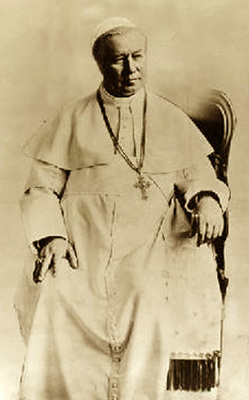 Yes, Lord; you know that I love You.
Yes, Lord; you know that I love You.
to make all things new in Christ, You filled Saint Pius X with heavenly wisdom
and apostolic courage. May his example and teaching lead us to the reward of
eternal life.
Deacons spend their lives for the Gospel as priests & bishops: intellectually, theologically & pastorally
On the feast of Saint Lawrence (August 10), the Cardinal
Prefect of the Congregation for Clergy, Claudio Cardinal Hummes, OFM, wrote to
the world’s permanent deacons that what the Year of the Priest is also oriented
toward the Order of Deacon and what is said to the priests applies very
much to the deacons. This is welcome news!
I admire the vocation of deacons but I have had my fill of deacons who
believe their vocation is undervalued, mis-understood or abused by priests. While there are tensions among some deacons and priests, the problem is often grossly reported. In
recent weeks since the pope inaugurated the Year of the Priest I have heard deacons complaining that they
feel “left out” by not having a spiritual/intellectual year dedicated to them
as one is to the priesthood. The moaning distracts. Complaining is rather
tedious when you see the connections among the various hierarchies in our
Church because none can exist without the other (even though the Church didn’t
have the permanent deaconate for long a period of time). Look at the witnesses of the sainted deacons through the millennia: Stephen, Ephrem, Francis among many. Quoting Pope “to work
in favor of this pull of priests toward spiritual perfection, upon which, above
all, depends the efficacy of their ministry,” (discourse of March 16, 2009).
Hence, I am happy to see something on the value of the permanent deacons in the
Year of the Priest because the call and ministry of priests and deacons are intimately
interrelated as is the call to the episcopacy in the service of the Gospel. Additionally,
I am elated the Cardinal once again drew our attention to the need to know our Scripture
and the practice of lectio divina. Proper and ongoing formation in the Lord and
the Church requires careful attention to the place of Scripture and lectio. The
letter said in part:
To know Revelation, to adhere unconditionally to Jesus
Christ as a fascinated and enamored disciple, to base oneself always upon Jesus
Christ and to be with Him in our Mission, this is then what awaits a permanent
deacon, decisively and without any reservation. From a good disciple a good missionary is born.
The ministry
of the Word which, in a special way for Deacons, has as its great model St.
Stephen, Deacon and Martyr, requires of ordained ministers a constant struggle
to study it and carry it out, at the same time as one proclaims it to
others. Meditation, following the
style of lectio divina, that is,
prayerful reading, is one well traveled and much counseled way to understand
and live the Word of God, and make it ones own. At the same time, intellectual, theological and pastoral
formation is a challenge which endures throughout life. A qualified and up to
date ministry of the Word very much depends upon this in depth formation.
The
second reflection regards the ministry of Charity, taking as a great model St.
Lawrence, Deacon and Martyr. The diaconate has its roots in the early Church’s
efforts to organize charitable works. At Rome, in the third century, during a
period of great persecution of Christians, the extraordinary figure of St.
Lawrence appears. He was archdeacon of Pope Sixtus II, and his trustee for the
administration of the goods of the community. Our well beloved Pope Benedict XVI says regarding St.
Lawrence: “His solicitude for the poor, his generous service which he rendered
to the Church of Rome in the area of relief and of charity, his fidelity to the
Pope, from him he was thrust forward to the point of wanting to undergo the
supreme test of martyrdom and the heroic witness of his blood, rendered only a
few days later. These are universally recognized facts.” (Homily Basilica of
St. Lawrence, November 30, 2008). From St. Lawrence we also take note of the
affirmation “the riches of the Church are the poor.” He assisted the poor with
great generosity. He is thus an ever more present example to permanent deacons.
We must love the poor in a preferential way, as did Jesus Christ; to be united
with them, to work towards constructing a just, fraternal and peaceful society. The recent encyclical letter of
Benedict XVI, Caritas in Veritate (Charity in Truth), should be our updated
guide. In this encyclical the Holy
Father affirms as a fundamental principle “Charity is the royal road of the
social doctrine of the Church” (n. 2). Deacons must identify themselves in a
very special way with charity. The poor are part of your daily ambiance, and
the object of your untiring concern. One could not understand a Deacon who did
not personally involve himself in charity and solidarity toward the poor, who
again today are multiplying in number.
Saint John Eudes: a guide for ecclesial renewal who said give self to Christ
Yesterday’s general audience (August 19, 2009) Pope Benedict took the opportunity to draw our attention to the saint being memorialized in the Liturgy, Saint John Eudes, as a model for personal renewal which will lead to the renewal of the priesthood. The zeal, the desire for the face of God, the need for conversion will lead, I am convinced, not only the renewal of the priesthood (and seminarians) but also the entire Church. Christ is the one thing we are seeking, the one person we are seeking. As the Baptist said, “He must increase; I must decrease.” AND focus on CHRIST!!!!!
Read a portion of the Pope’s address.
While contempt was being spread for the Christian faith by some currents of thought that were prevalent then, the Holy Spirit inspired a fervent spiritual renewal, with prominent personalities such as that of Berulle, St. Vincent de Paul, St. Louis Mary Grignion de Montfort and St. John Eudes. This great “French school” of holiness also had St. John Mary Vianney among its fruits. By a mysterious design of Providence, my venerated predecessor, Pius XI, proclaimed John Eudes and the Curé d’Ars saints at the same time, on May 31, 1925, offering the Church and the whole world two extraordinary examples of priestly holiness.
In the context of the Year for Priests, I wish to pause to underline the apostolic zeal of St. John Eudes, directed in particular to the formation of the diocesan clergy.
The saints have verified, in the experience of life, the truth of the Gospel; in this way, they introduce us into the knowledge and understanding of the Gospel. In 1563, the Council of Trent issued norms for the establishment of diocesan seminaries and for the formation of priests, as the council was aware that the whole crisis of the Reformation was also conditioned by the insufficient formation of priests, who were not adequately prepared intellectually and spiritually, in their heart and soul, for the priesthood.
This occurred in 1563 but, given that the application and implementation of the norms took time, both in Germany as well as in France, St. John Eudes saw the consequences of this problem. Moved by the lucid awareness of the great need of spiritual help that souls were feeling precisely because of the incapacity of a great part of the clergy, the saint, who was a parish priest, instituted a congregation dedicated specifically to the formation of priests. He founded the first seminary in the university city of Caen, a highly appreciated endeavor, which was soon extended to other dioceses.
The path of holiness he followed and proposed to his disciples had as its foundation a solid confidence in the love that God revealed to humanity in the priestly Heart of Christ and the maternal Heart of Mary. In that time of cruelty and loss of interior silence, he addressed himself to the heart so as to leave in the heart a word from the Psalms very well interpreted by St. Augustine. He wanted to remind people, men and above all future priests of the heart, showing the priestly Heart of Christ and the maternal Heart of Mary. A priest must be a witness and apostle of this love of the Heart of Christ and of Mary.
Today we also feel the need for priests to witness the infinite mercy of God with a life totally “conquered” by Christ, and for them to learn this in the years of their formation in the seminaries. After the synod of 1990, Pope John Paul II issued the apostolic exhortation Pastores Dabo Vobis, in which he took up and actualized the norms of the Council of Trent and above all underlined the need for continuity between the initial and permanent moments of formation. For him, for us, this is a real point of departure for a genuine reform of priestly life and apostolate, and it is also the central point so that the “new evangelization” is not simply an attractive slogan, but rather is translated into reality.
The foundations of formation in the seminary constitute that irreplaceable “humus spirituale” in which it is possible to “learn Christ,” allowing oneself to be progressively configured to him, sole High Priest and Good Shepherd. The time in the seminary should be seen, therefore, as the actualization of the moment in which the Lord Jesus, after having called the Apostles and before sending them out to preach, asks that they stay with him (cf. Mark 3:14).
When St. Mark narrates the vocation of the Twelve Apostles, he tells us that Jesus had a double objective: The first was that they be with him, the second that they be sent to preach. But in going always with him, they truly proclaim Christ and take the reality of the Gospel to the world.
In this Year for Priests, I invite you to pray, dear brothers and sisters, for priests and for those preparing to receive the extraordinary gift of the priestly ministry. I conclude by addressing to all the exhortation of St. John Eudes, who said thus to priests: “Give yourselves to Jesus to enter into the immensity of his great Heart, which contains the Heart of his Holy Mother and of all the saints, and to lose yourselves in this abyss of love, of charity, of mercy, of humility, of purity, of patience, of submission and of holiness” (Coeur admirable, III, 2).
Avery Dulles’ treasures archived
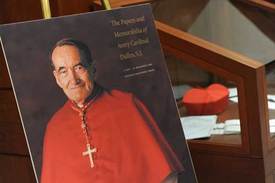 Recently, Fordham University’s Walsh Library, in collaboration
Recently, Fordham University’s Walsh Library, in collaboration
with one of Cardinal Avery Dulles‘ closest collaborators, Dominican Sister
Ann-Marie Kirmse, displayed many of the cardinal’s possessions. It brings together the many intimate things of Avery Dulles who died 12 December.
gives us another testimony to the great American Jesuit priest, theologian,
cardinal and friend. As Sister Ann-Marie observed: “At that [at the cardinal’s burial] moment, I
realized that the love Cardinal Dulles had for God, his family, his friends and
colleagues, his Jesuit community, his students, and his country are an
important part of his legacy as well.”
